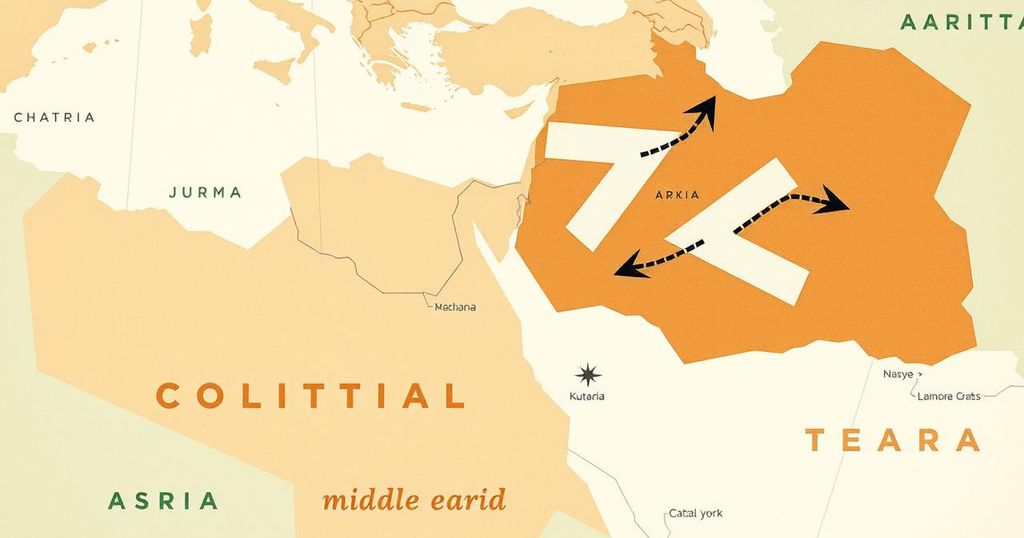China Reassesses Middle East Policy in Light of Gaza War

The Gaza war has necessitated a reassessment of China’s Middle East policy. Previously following a hedging strategy, China must adopt a proactive diplomatic stance, emphasizing the Palestinian issue as central to Middle Eastern stability. Moving forward, China aims to enhance its presence and support regional ambitions while countering U.S. influence in the area.
In light of the recent Gaza war, China is compelled to reassess its Middle East policy, which has been previously guided by a principle of maximizing economic benefits while minimizing political risks. This reevaluation is crucial as changes in regional power dynamics now necessitate a more proactive stance in diplomacy.
Chinese Foreign Minister Wang Yi has emphasized the Palestinian issue as central to Middle Eastern stability, asserting that resolution through a two-state solution is essential for lasting peace. With this, China acknowledges that its previous non-confrontational strategy is no longer viable in the evolving landscape.
China’s past approach, termed a “hedging strategy,” allowed the country to foster substantial economic ties, most notably through the Belt and Road Initiative and the Digital Silk Road. These connections aligned with the aspirations of Gulf nations to enhance their digital economies, reflecting a mutual interest in development.
Over the last decade, China’s strategy transitioned from a passive to a more assertive role in regional diplomacy, characterized by initiatives such as “quasi-mediation diplomacy.” This approach sought to cultivate strategic partnerships and promote multilateral discussions among Middle Eastern countries, as evidenced by agreements with Iran and improved relations among Arab states.
The ongoing Gaza conflict and shifts in regional alliances necessitate a fresh diplomatic framework for China. Key transformations include Israel’s strengthened military position, a diminished Iranian influence, and the assertive support the United States extends to Israel, complicating the trajectory of Palestinian statehood.
The geopolitical landscape is further complicated by U.S. policy under President Trump, which adopts an alliance-centric approach between the U.S. and Israel. Trump’s agenda poses challenges to China’s influence in the region, compelling Chinese interests to adjust.
In anticipation of possible U.S. actions, such as the revival of maximum pressure on Iran and advocating for further normalization of ties between Gulf states and Israel, China must reconsider its strategic posture. Adopting a new approach entails several critical strategies: supporting Gulf states’ strategic autonomy, expanding ties with Saudi Arabia, and actively advocating for Palestinian rights through reconstruction efforts and international diplomacy.
To maintain its interests and effectiveness in the Middle East amidst U.S. hegemony, China must take a more engaged approach, countering the perception of being a “free rider” in favor of demonstrating a vested interest in regional stability and prosperity.
China’s current reevaluation of its Middle East policy is driven by the shifting dynamics revealed by the Gaza war and the confrontational stance of the U.S. The necessity for a robust and engaged diplomatic approach is clear; China must reinforce partnerships with Gulf states, advocate for Palestinian sovereignty, and redefine its role beyond mere economic interests to ensure its long-term influence in the region. This comprehensive strategy is essential for bolstering China’s position amidst U.S. pressures and fostering a multipolar world order.
Original Source: www.arabnews.com








